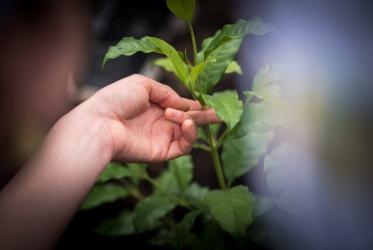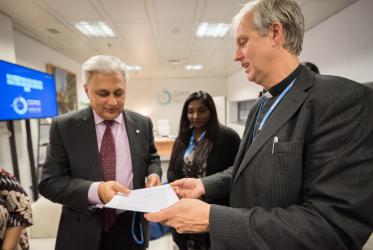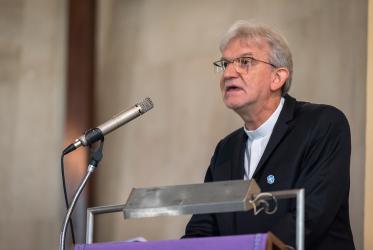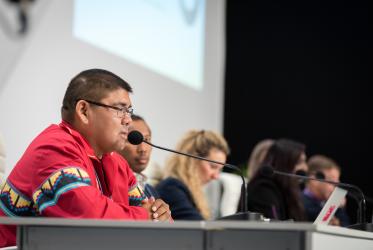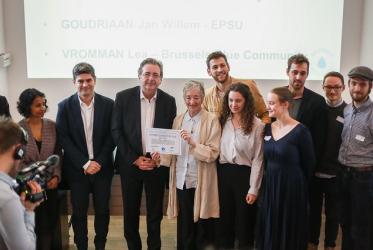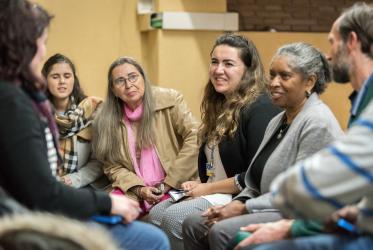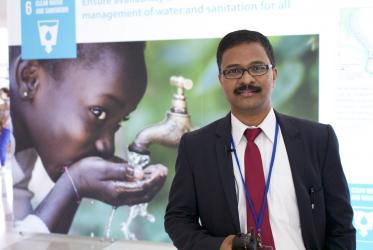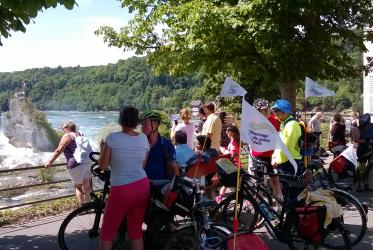Affichage de 1 - 20 de 55
Un colloque œcuménique de réflexion théologique sur l’écologie
18 Février 2021
Churches should use their voice on climate change
26 Février 2020
Interfaith group delivers message to COP25
10 Décembre 2019
“See humans as part of creation” in addressing climate emergency
06 Décembre 2019
WCC joins gathering of Blue Communities in Brussels
06 Décembre 2019
WCC helps local French community say “no” to bottled water
11 Juillet 2019
WCC expresses sadness, solidarity after Notre Dame fire
16 Avril 2019
Churches in France encourage ecological conversion
24 Janvier 2018
A cycling pilgrimage of justice and peace
07 Août 2017
G7 must address famine
22 Mai 2017

